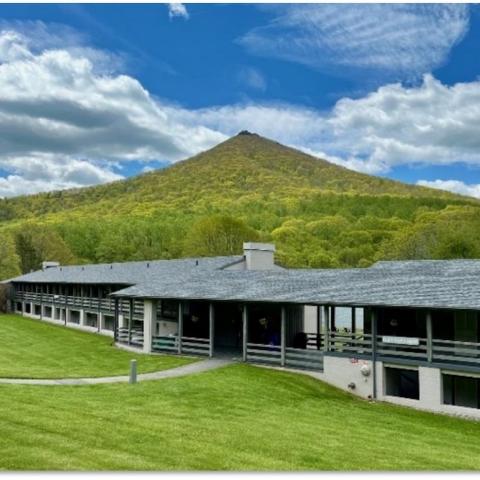
Helicopter operations removing plane wreckage away from remote, unauthorized trail/NPS, C. Ulrey
The remaining wreckage from a 1983 plane crash on land now inside the Blue Ridge Parkway has been removed from the site due to resource damage caused by growing numbers of hikers who created social trails in an effort to visit the site.
A helicopter was used Tuesday to lift the wreckage out of the area.
The Cessna 414A had crashed near Waterrock Knob in North Carolina back in November 1983. The crash site is on land that was donated to the Blue Ridge Parkway in 2016. Since that time, the site has seen a high volume of visitors accessing the wreckage via unauthorized social trails, causing concerns for the safety of hikers who can get lost and injured as well as severe damage to rare and sensitive species from trampling, erosion, soil compaction and vegetation removal.
In recent years, traffic to the site has increased in large part to greater visibility on social media and various websites.
“While we understand the interest associated with this site, the resource damage and visitor safety issues presented too great a threat to take no action,” said Blue Ridge Parkway Superintendent Tracy Swartout. “Caring for these special places requires everyone’s cooperation, and we ask that everyone play a role in the protection of this place and not cause any further damage or injury to the resources or themselves by going off trail to find this site.”
In addition to the cultural significance of this area to the Eastern Band of Cherokee Indians, the Waterrock Knob area is one of four high elevation sites in the park where there is a concentration of rare and sensitive species, including Pinkshell azaleas. In recent years, this area has also been the focus of a large-scale land conservation initiative in cooperation with and thanks to support from multiple organizations.
The park’s philanthropic partner, the Blue Ridge Parkway Foundation, provided funding support for the removal project.
“Given the level of resource damage in recent years at this site and our interest in supporting the National Park Service mission to protect these places in perpetuity, we are glad to help ensure protection of this habitat while also considering the safety of park visitors,” said Carolyn Ward, chief executive officer of the foundation.
Due to the remote nature of the wreckage, removal of the plane debris required a helicopter to airlift remaining sections of the plane from park lands. At the time of the 1983 crash, the engines were salvaged from the site, but the fuselage, wings and other debris were left on-site. Both passengers aboard the plane were killed in the crash.

1983 plane wreckage removed from Blue Ridge Parkway/NPS




 Support Essential Coverage of Essential Places
Support Essential Coverage of Essential Places






